
Cannabis, popularly known as marijuana, is a psychoactive drug that has been extracted from the cannabis plant. For centuries, cannabis has been used for both recreational and medicinal purposes, but due to its intense and addictive effects, it has been restricted in many parts of the world.
Cannabis is rapidly gaining popularity again as a drug that can aid in various ailments such as indigestion, mood disorders, and relieve chronic pain, to name a few. There are mainly two types of cannabis: CBD (Cannabidiol) and THC (delta-9-tetrahydrocannabinol). While both function the same, the only difference between the two is that CBD does not produce the feeling of being “high,” whereas THC does.
Cannabis can be used in various ways, such as vaping or smoking, consuming edible CBD-infused foods, applying topicals on the skin, or consuming them as capsules orally.
As more governments legalize the use of cannabis, cultivators, and producers are rapidly increasing their market. Studies show that the cannabis industry can be considered a multi-billion dollar part of the pharmaceutical enterprise. With this rapid growth comes potential threats of theft, vandalism, or unauthorized access of your cannabis business. Therefore, it is essential to have all your bases covered and protect your business by implementing the following seven security measures:
1. Dispensary and Cultivation Premises Security

Cannabis or marijuana dispensaries have become easy targets for people who are looking to make a quick buck. Your cannabis cultivation facility security requires top-notch specialized protection, security backup plans and services. Here are some measures you can consider:
- Access Control System
Utilize technologies and install robust access control systems to restrict access to authorized personnel only. Use keycards, pin codes, or biometric scanners to ensure safe and secure access to sensitive places such as offices, inventory and storage spaces.
- Video Surveillance Cameras
Surveillance cameras are a great way to keep an eye on key areas of your facility, such as entry and exit points, storage and inventory areas, and sale points. With 24/7 high-definition cameras, it can produce evidence in case of theft or other incidents that may take place. It’ll also help in maintaining compliance with regulatory requirements.
- Alarm Systems
Install intrusion detection systems such as motion sensors and alarms that would alert respective personnel or security guards in case of a breach or unauthorized entry.
2. Inventory Management
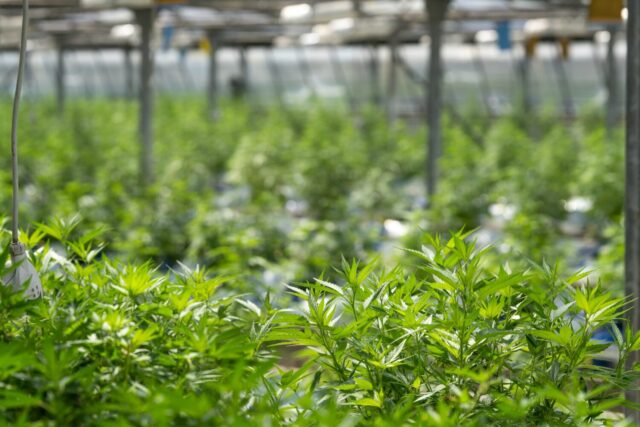
One of the most important sections that need to be secured is your inventory.
- Install Softwares: Install a seed-to-sale software that helps in simplifying, recording and tracking your processes and activities in growing, cultivating, and selling cannabis. You can have access to real-time visibility into inventory levels, streamline operations and prevent theft.
- Set RFID Tags: Set up radio frequency identification (RFID) tags to track your cannabis products throughout their lifecycle. This way, it’ll not only reduce theft but can be traced in case of misplacement.
3. Employee Training and Security
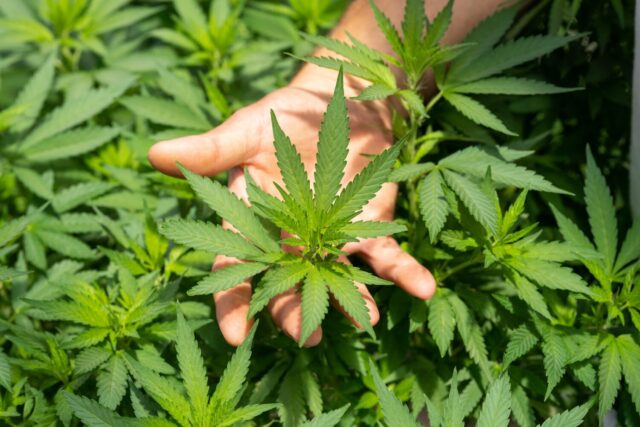
Your cannabis business will be as safe as the ones who protect it. Therefore, choose your employees and security staff wisely. Conduct thorough background checks on your potential employees to ensure they can be trusted with sensitive information and valuable assets.
In addition, provide regular training to employees and security staff to teach them to identify suspicious activities, maintain and follow security protocols and respond effectively and efficiently to potential threats. You can place guards on specific key areas or, for a more discreet look, you have them patrolling in plain clothes. Whatever strategy you choose, a security-conscious workforce can mitigate risks and keep your facility and inventory safe.
4. Cybersecurity Measures
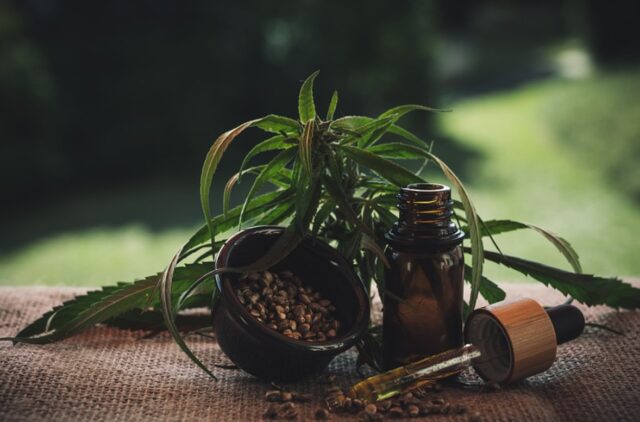
These days online dispensaries are making cannabis accessible to all, and with that comes potential cyber threats. Utilize the power of technology and invest in robust cybersecurity measures to secure your IT infrastructure. This includes protecting sensitive data, customers’ information, financial data, and daily operational activities. Install firewalls, encryption and regularly update softwares to safeguard against cyber threats.
Moreover, it is also essential to regularly back up your data and place reliable disaster recovery plans to mitigate the risks of data loss or system breaches. This will ensure that critical data and business information can be restored promptly during an incident.
5. Intellectual Property Security
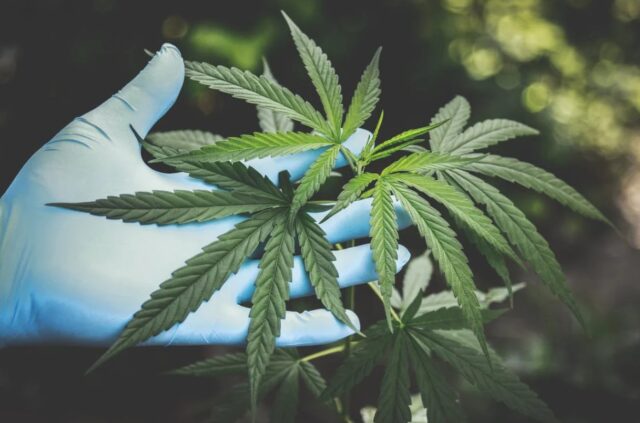
The economical benefits of legalizing marijuana are driving more and more people to start up or invest in cannabis-based businesses. In order to stand out from the crowd, just like any other business, cannabis-based businesses need to protect their identity and build brand recognition. The only way to safeguard their intellectual property (IP) is by using IP protections such as copyrights, trademarks, trade secrets, and patents. This way, they can protect their creative assets, help preserve intellectual property and effectively shield themselves from IP infringement.
- Copyright: Copyrights protect creative assets such as literary, musical, or artistic creations, but it does not protect the facts, systems, ideas, or method of operations. An advantage to this is that copyright is not restricted by the federal illegality of marijuana. This means that even if your business does not have a trademark element, it can still prevent others from copying, reproducing, distributing, and displaying your work under copyright law.
- Trademark: A trademark on your business legally protects your brand name, symbol, or logo that differentiates your business from others. Securing a trademark disables your competitors from using your name and gives you the power to sue those businesses with similar or identical trademarks.
However, securing a trademark for a cannabis-based business is difficult. Trademark protection is allowed on products for lawful use. Marijuana is considered to be a controlled substance; therefore, any plant-inclusive good is ineligible for federal trademark protection.
In this case, there are other alternatives. Cannabis companies can pursue federal registration for ancillary services or state trademark registration in their own respective individual states of operations.
- Patents: A patent grants exclusive rights that stops others from commercializing, distributing, and selling a product or service. And just like copyright, patents are legal for cannabis-based businesses.
Patents are especially useful in protecting new cannabis products. For instance, when you use certain kinds of plants to reproduce asexually, patents can help protect these new and innovative cannabis plants that have distinctive characteristics from other strains. Vaporizer devices, extraction methods, new cannabis compositions, and all cannabis-related products and inventions are protected by patents.
- Trade secrets: A trade secret safeguards practices, recipes, formulas, or designs that are not public knowledge.
Trade secrets protect cannabis strains, processes, solutions, manufacturing or operation details, and more. This type of IP protection can be utilized by business owners to form non-disclosure and employment agreements to prevent their trade secrets from being exposed.
6. Transport Security

In order to safely transport cannabis products, establish safe and secure protocols, install GPS tracking devices on vehicles, provide tamper-evident packaging, and employ trained security drivers. This way, you can ensure smooth transit, prevent theft and maintain the integrity of your supply chain.
7. Collaborate with Law Enforcement
Establish a good connection with the local law enforcement agencies by sharing information, following guidelines, rules, and regulations, sharing information, and combining efforts to combat criminal activities.
8. Fire Safety Resources
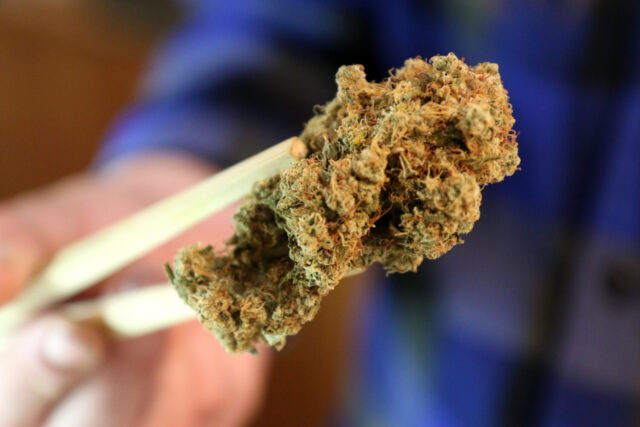
Cannabis industrial process and production come along with a number of potential hazards. One such hazard is fire. Focus on regulating and minimizing the risk of your facility catching fire by considering implementing some safety measures:
- Sprinkler System: Before building the facility, consider how tall your grass will get, the lighting and rack systems to be used, and then set up a sprinkler system design.
- Proper Ventilation: Plant growth depends on fumigation and proper fertilization. Growers fumigate plants with sulfur dioxide to prevent the accumulation of powdery mildew. This can be very corrosive when it is done in the presence of water vapor which can be disastrous on the CO2 detection equipment.
Pesticides are another concern that can trigger a fire hazard. Therefore, proper ventilation systems are required to avoid fire.
- Gas Leakage Detection Systems: These detection systems will alert the growers and operators of hazardous gasses that are unseen and do not smell when there’s a leak.
- Regular inspections & drills: Regular fire safety inspections and training drills must be done for the safety of your business facility and your staff.
- Install Fire Safety Devices: Devices such as hydrants, fire hoses, buckets, and extinguishers should be placed in critical hazardous areas to respond immediately to a fire.
To Wrap It Up
When it comes to running a successful and compliant cannabis business, prioritizing the security of the company is a crucial aspect. By implementing alarm systems, installing cybersecurity measures, training your personnel, and protecting your brand identity, you can protect your valuable assets, ensure the safety of your facilities, and preserve customers’ trust. You can save the integrity of your business operations by investing in robust security measures, which is an essential step towards long-term success in the cannabis industry.









